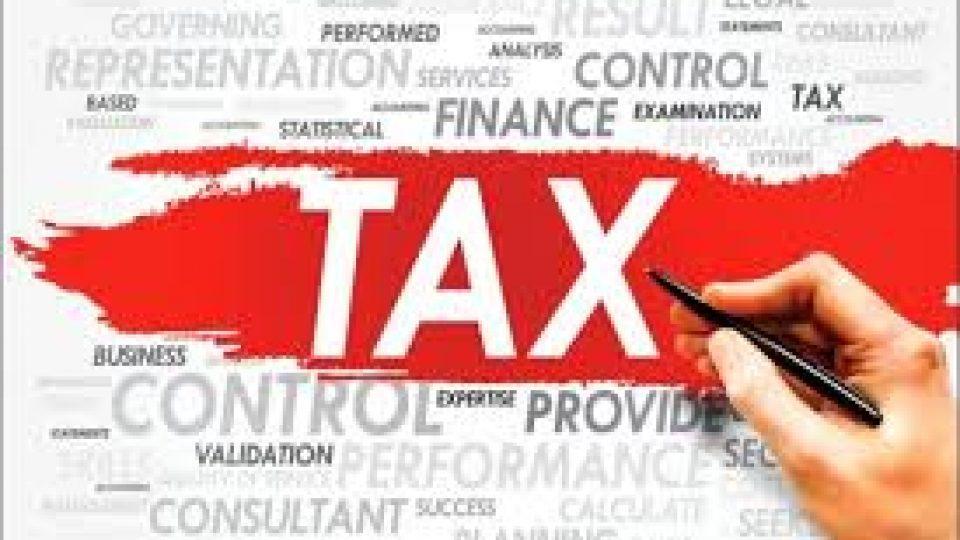By – Abba Hamisu Sani
Africa-Press – Nigeria. The recent most trending issue in Nigeria that received so much attention and comment among divergent Nigerians is the tax Reform Bill submitted to the National Assembly by the President Bola Ahmed Tinubu.
The bill which generated so much tension among political ,religious leaders and activists is said to change the manner of revenue sharing formula between the three Federation units ; Federal ,States and Local governments.
This issue created another wave at this point of economic hardship that Nigerians can not afford the basic necessities of life.
The Tax Reform act initiated by Tinubu’s administration is also seen as the second most critical economic decisions of a less than two year old APC administration, after the fuel subsidy removal which its impact is still felt by the majority of Nigerians.
The content of the controversial Tax Reform Bill
President Bola Ahmed Tinubu seeks the National Assembly to amend four tax laws which include Joint Revenue Board of Nigeria (Establishment )bill 2024.-SB.583; The Nigeria Revenue Service (Establishment) BILL 2024 – SB.584 ; The Nigeria Tax Administration Bill 2024 ,and the Nigeria Tax Bill ,2024 -SB 86.
The Bill Presentation at the Senate.
The Executive bill of Tax Reform was presented to the Senate on Thursday 28th November 2024 by the Senate leader Opeyemi Bamidele during plenary. After the debate on the general principles of bills.
The lawmakers read them for the second time and referred them to the Senate Committee of Finance for further legislative action.
The bill scaled the second reading initially after the Chairman of the Committee on Fiscal Policy and Tax Reforms Taiwo Oyedele appeared before the Senate to explain their purposes.
Senator Oyedele told the law makers that the bills aimed to lift the tax burden on 90 percent of Nigerian workers.
Mr Bamidele while leading a debate on the general principles of the bills stressed the need to Reform Nigeria’s tax system to help low income earners.
He also said the bills essentially seek to ensure uniformity in the country’s tax revenue collection system.
“Nigeria’s tax reforms bill is a significant move to overhaul the country’s tax system.
These bills aim to simplify the tax landscape, reduce the burden on small businesses and streamline how taxes are collected.” He Stated.
Senator Bamidele added that in broad terms, the four bills seek to ensure uniformity in tax revenue administration in Nigeria in accordance with the provisions of the Constitution, eliminate the incidence of double taxation across the country, deploy taxation as a tool to encourage private sector investments in critical industries and boost individual disposal incomes through targeted tax exemptions as captured in the various bills,.
The benefits of the Reforms
Mr. Bamidele, the senator representing Ekiti Central Senatorial District ,further explained that the bills seek to exempt Nigerians who earn minimum wage from the pay as you Earn (P A Y E )
The Senate leader noted that the bills ,when passed and assented to by the President,will also exempt small businesses from paying tax.
” In the area of tax exemptions ,there is a proposal to exempt those whose salaries are not more than the minimum wage from P.A.Y.E deductions while small businesses with annual turnover of 50,000,000 or less are equally exempted from payment of tax” he stated.
The Senate leader added that the bills seek to reduce company income tax from 30 per cent to 25 per cent.
Aside from the reduction of Company income tax
Mr Bamidele explained that the provisions of the bills also seek to use a certain percentage of the various taxes to fund the Student loan Scheme of the Federal government.
“Similarly, there is a proposed huge reduction in company income tax from the current 30 per cent to 25 per cent by 2026.
As part of deliberate attempt to curtail the incidence of double taxation and multiplicity of taxes and levies, multiple taxes hitherto paid by companies under various tax heads namely 2.5 per cent education tax, 0.25 per cent NASENI tax have been harmonised into a development levy of 2 per cent which by 2030 will be applied to fund the newly established student loan scheme which will benefit many Nigerian youth,” Mr Bamidele said.
The sharing Formular of the Nigerian Revenue
It is a known fact that Nigerian revenues are shared between Federal ,States and Local Governments.
On the sharing formula of the Value Added Tax (VAT) ,the Senate leader explained that the bills propose to allow state governments to take 55 per cent of VAT revenue while the remaining will be shared between the federal and Local governments with the former taking 10 per ce
“However ,local government’s share of VAT revenue remains unaffected.Relatedly ,basic items consumed by Nigerian households such as food items ,medical services and pharmaceutical ,educational fees ,electricity are exempted from VAT ” he said.
Afterwards ,Mr Bamidele urged his colleagues to support the tax reform bills and see them as part of the legislative intervention needed to support ongoing fiscal and tax reform measures needed to reposition the Nigerian economy for growth and productivity.
The motion was seconded by Senate Minority leader
Abba Moro is the Senate Minority leader and member of the opposition People’s Democratic Party – PDP. He seconded the motion immediately after the presentation.
Mr Moro, representing Benue South Senatorial District, said the reforms would assist many Nigerian workers who are low-income earners and also help small business enterprises operating within the country.
Senator Sani Musa, the Senator representing Niger East ,said the tax reform bills are in the interest of the country.
Mr.Musa ,the chairman of the Senate Committee on Finance, assured that his committee will involve all concerned stakeholders during public hearing.
He also urged his colleagues to support the bills because it is a development for the nation.
Northern Christian Youth Professionals is one the Regional Base organizations that expressed their view on the proposed Tax Reform Bill.
The Association objected to the proposed reform bill
“We acknowledge that this shift presents unique challenges for northern states, which have for many years relied on the federal sharing of the 50% VAT equally to all the states, and it is with these funds that the state governors run the states. As such a reduction in federal VAT revenue under this model could significantly impact the region.
However, this is not a time to dwell on challenges alone. Instead, we urge our state governors to take this challenge as an opportunity to redefine the northern region’s economic narrative—a narrative rooted in independence, innovation, and resilience.
For decades, northern Nigeria has been a cornerstone of the country’s economic history, from the era of the groundnut pyramids to its agricultural and industrial contributions. Today, we must harness that same spirit of enterprise and determination to develop the economy that this new VAT derivation formula will favor us too.
One of the key ways the reforms will benefit the northern region is by creating an environment conducive to business growth and investment. With a reduced corporate income tax rate, businesses in the region will have more resources to invest in expansion, hiring, and innovation. This, in turn, will lead to job creation, increased economic activity, and a rise in living standards.” The northern Christian stated.
The Association Similarly, said the reform is sensitive to the plight of the common man, in this sense our northern Talakawas as it Exempts individuals earning N800,000 or less from paying income tax.
Currently, if you earn a total of 800,000 Naira annually, you are required to pay 84,000 Naira out of this amount as income tax. But With this bill, you will not pay anything. So you see that the bill helps to fight poverty at the Talakawas level (masses).
Also only those earning above 50 million naira get to pay a 25% personal income rate. Under the current law, once you earn above N3.2 million you will be charged 24% income tax.
3. Look at how the bill also is sensitive to small businessmen and women, it Exempts small businesses from paying income tax. In this bill, small companies are defined as those with an annual turnover of 50 million Naira or less. In the current law, small businesses are defined as those with a turnover of 25 Naira million or less. What this means is that up to 90% of businesses in Nigeria will be exempt from paying income tax.
Reduction of company income tax rate from 30% to 25% in 2026 for medium and large companies.
Elimination of minimum income tax of 1% charged on the gross earnings of medium and large companies that did not declare profit. Only profit is taxed under the new tax bill.
So if you look at the bill critically you understand that while it takes from the rich more it protects the poor.
The call for Northern Northern Elites and governors
So this is why we are calling on our Northerner Governors and elites to look inward-our region is endowed
Address Security Challenges: Insecurity and terrorism, often fueled by religious intolerance, must be confronted through policies and programs geared at uniting the people. Once we secure our region, multinational investors will come in to invest because we have the population for their markets.
Embrace Meritocracy: We must empower the brightest minds and talents, ensuring excellence drives progress.
With these measures, the northern region can regain its economic vibrancy, generate substantial VAT revenue internally, and secure a thriving, self-reliant future.
This is our moment to redefine northern Nigeria—not as a region dependent on federal allocations or VAT generated from companies headquarters outside our region but as a powerhouse of productivity and innovation.
This is the time for our states in noth to contribute resources to the center just like any federating state from other states in the south.
Dr. Abbati Bako is a Political Strategy and Communication Consultant and Researcher in International Politics lecturer at Skyline University, Kano and Treasurer of Kano Chamber of Commerce Mines Industries and Agriculture.
Looking Into The Political Angle Of The Issue And The Year 2027 Is Around The Corner
“Politics is a complex game of competing values, interests, and ambitions. Elected officials and governments have a responsibility to protect the values of their constituents, including religious, traditional, cultural, and family values, as well as environmental concerns. In politics, the post of elected president and elected councillor are all servants of the people.” The analyst stated.
Public Interest should prioritise and the Imperative of the economic growth
Moreover, governments must prioritize the interests of their people, focusing on economic growth and development, food and want security, education, healthcare, human rights, equal opportunities, and women’s rights. Every nation or society must also have an ambition to develop, driving infrastructural growth, economic interests, energy supply, higher education, and transportation systems – the backbone of economic interplay.
This is the essence of political democracy, where representatives of the people are elected to be their voice and ambassadors within the corridors of power. In a constitutional democracy, these representatives are expected to speak on behalf of the people, upholding their values, interests, and ambitions.
In the context of Nigeria’s tax reform, President Bola Tinubu’s administration must balance competing values, interests, and ambitions. The proposed tax reform aims to promote economic growth, reduce inequality, and increase government revenue. However, it is crucial to ensure that the reform prioritizes the needs and interests of all Nigerians, particularly the most vulnerable populations.
Ultimately, the success of Nigeria’s tax reform depends on the government’s ability to navigate the complex game of politics, balancing competing values, interests, and ambitions while prioritizing the needs and interests of all Nigerians.
Kudos to His Excellency the President of Nigeria Senator Bola Tunubu for his willingness to listen to the complaints of Nigerians on the issue of tax reform. For many years there’s no controversies in Nigeria like the current situation of tax reform especially from the Northern part of Nigeria whereby the elites and stakeholders in the region criticized the tax reform bill for the fact that it will bastardize the economy of the region.
For More News And Analysis About Nigeria Follow Africa-Press







